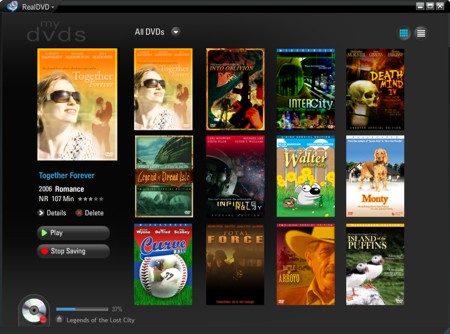RealDVD Trial Heats Up

RealDVD is a PC software program that copies DVDs to hard drives. It allows titles to be browsed by cover art, among other niceties. The MPAA asserts that it is little more than a Trojan horse for "rent, rip, and return," allowing consumers to infringe copyrights freely, in violation of the Digital Millennium Copyright Act of 1998. RealNetworks, with the backing of electronic libertarians, retorts that the application simply allows a single backup copy to be made, for use on a portable device, and that this constitutes fair use. The technicality at issue is whether RealDVD's use of the DVD format's CSS digital rights management is illegal under the CSS licensing agreement.
RealNetworks is also working on a server product called Facet, which would store hundreds of DVDs on a hard drive, similar to Kaleidescape--which has had legal troubles of its own. Presumably the same legal/technical issue would come into play.
The National Consumers League is throwing its support behind RealDVD, citing a survey showing that 90 percent of consumers feel DVD owners should be able to copy DVDs to PC as they already do with CDs. The percentage for households with children is 93 percent. The survey also says 69 percent use a PC to watch DVDs, 31 percent use a portable or in-car DVD player, and 38 percent have had to repurchase at least one DVD due to loss or damage. At the bottom of the press release is this statement: "The National Consumers League thanks RealNetworks for the unrestricted educational grant that made this survey possible."
The latest outrage is that Judge Marilyn Patel--who halted sales of RealDVD last fall, and shut down the original Napster in 2001--has ejected the press from her courtroom at the request of the MPAA. The excuse is that technical details surrounding CSS must be kept secret. However, every hacker in the universe is already privy to information about the easily cracked DRM, which can be defeated with seven lines of code. Only those who sign a nondisclosure agreement may cover the case, which effectively means no detailed courtroom coverage. Judge Patel seems to exist in a strange alternate universe where the First Amendment can be suspended on the faintest pretext.
























































